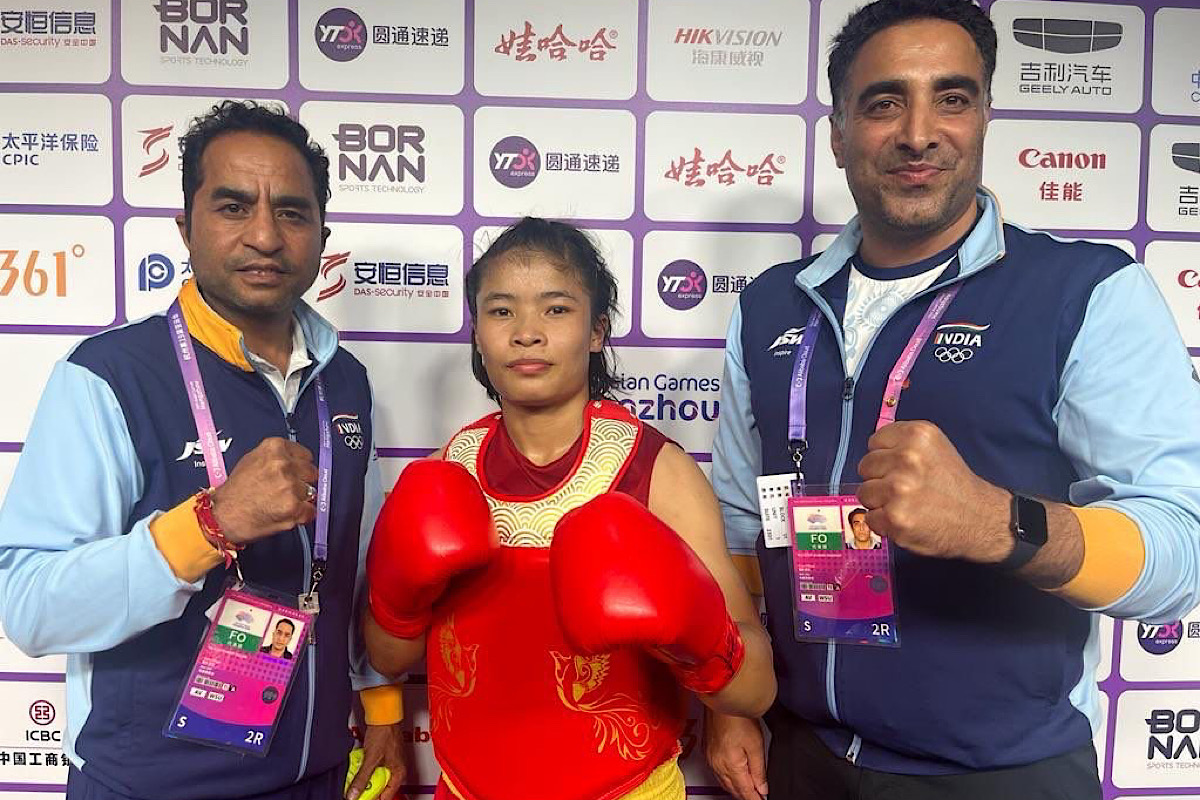Naorem Roshibina Devi has been away from her near ones based out of Bishnupur district in Manipur, for close to a year, the closest she reached was Imphal’s SAI campus at the Khuman Lampak Stadium complex in May, when the violence was at its peak with the two main ethnic groups (Kukis and Meiteis) at each other’s throats.
While the situation in the Northeastern state is yet to normalise, Roshibina left Imphal after being advised against visiting her native Kwasiphai Mayai Leikai village in Bishnupur district, hardly an hour’s drive from the state capital.
Advertisement
On Thursday, Roshibina lit up the wushu contingent’s rather uninspiring campaign, marred by the denial of accreditation of three Arunachal Pradesh players, Nyeman Wangsu, Onilu Tega and Mepung Lamgu, with a silver medal in the women’s 60kg event.
But more than the happiness of ensuring the medal for the country at the 19th Asian Games, the 22-year-old is concerned about the well being of her family back home.
“I cannot help out in the war in Manipur. I want to dedicate this medal to those protecting my home. I know my appeal for peace won’t make much of a difference but I want the things to normalise back home. I want the fires that are burning to go away,” said a teary-eyed Roshibina, who will next gear up for the Wushu World Championships in the US in November.
Having won a gold at the prestigious Moscow Wushu Stars competition earlier this year, Roshibina desperately wanted to spend quality time with her family in May, as her compatriots had already left for their respective places. However, the Manipuri wushu athlete was forced to confine herself to the four walls of the hostel at the SAI campus, before leaving for the Asiad camp in Srinagar.
While she made up her mind to wait till the situation normalizes post the Asian Games, Roshibina has been in touch with her family over phone calls during weekends, as internet services are once again suspended after recent fresh cases of violence in the state.
Describing the horror that unfolded in Manipur on May 3, Roshibina had said that it was difficult for her to focus on her game both mentally and physically. In an interview before leaving for Hangzhou, Roshibina had said, “My village is one of the worst-affected places. I always fear for the well-being of my parents.”
Born in a Meitei family, Roshibina’s father Naorem Dhamu and mother Romila Devi are farmers, and in a way connected with the ongoing protests in Manipur. While her father is associated with the protests, her mother sits with a group of other women from the community on overnight vigil to protect their village – a regular sight across the worst-hit districts of Manipur. Concerned about the safety of her teenaged brother Priojit, Roshibina has advised him not to venture out of their place alone.
“There’s always a fear that I’m talking to them for the last time. It’s really tough for us, but what’s more worrisome for me, is when I ask them not to take part in the protests, they would answer back, saying, that it’s their responsibility to safeguard the community’s interest,” said Roshibina, a gold medallist at the 2019 South Asian Games in Kathmandu-Pokhara.
At the camp, India’s chief national coach Kuldeep Handoo ensures that she doesn’t lose her focus from her primary goal of winning the Asian Games gold, and allows her to use her phone only on Sundays.
Roshibina is also a bronze medallist from the Jakarta edition of the Asian Games in 2018.
“It’s important she doesn’t lose her focus on the job at hand (winning the Asian Games gold medal) but at the same time we have to understand her situation. We know how bad the situation is in Manipur, and if she has a phone, it’s natural she will always keep on tracking the situation back home. So we made a point to make her talk to her family only on Sundays,” Handoo had said.











